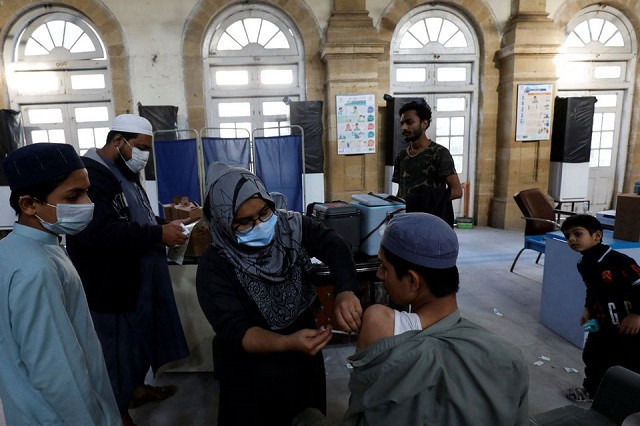
When the population of a country is healthy, it makes them not only more productive, and earn more income but also enhances their happiness and collectively contributes to the socio-economic development. The Covid-19 pandemic has clearly revealed the danger of not considering health in all policies.
The third Sustainable Development Goal (SDG) is “Good Health and Wellbeing”, the objective being to ensure healthy lives and promote wellbeing for all at all ages. Some of the topics it covers are related to maternal mortality, neonatal mortality, communicable diseases, mental health, prevention and treatment of substance abuse.
The aim of wellbeing agenda is to create social, health, economic and environmental conditions that improve both individual and collective quality of life and give people a sense of purpose. World Health Day is celebrated on April 7 every year. It is an initiative taken by the World Health Organisation (WHO) to raise awareness of the overall health and wellbeing of people across the world.
The World Health Day is held to mark WHO’s founding, and is seen as an opportunity to drive worldwide attention to global health each year. In 1945, Brazil and China proposed the creation of an international health organisation, therefore, in 1946, the constitution of WHO was approved and came into force on April 7, 1948. Since 1950, the Worth Health Day uses a different theme each year. This year’s theme is “Our planet, our health.
Pakistan and health
According to the Finance Division of Pakistan, the health expenditure was 1.2% of gross domestic product (GDP) in 2020 as compared to 0.7% in 2012. The 18th Amendment has devolved the provision of health services to the provincial governments, however, the federal government continues to fund health sector projects through the Public Sector Development Programme (PSDP).
In addition, the government had introduced a special programme to mitigate the impact of Covid-19 pandemic. World Bank’s data says that the prevalence of undernourishment in Pakistan as a percentage of population decreased from 21.1 (2001) to 12.9 in 2019. Evidence from the most recent data, collected by the PBS, shows that each of the health measures indicates a positive health profile.
Full immunisation rates (all the 11 recommended vaccines) based on record increased to 70% in 2020 from 60% in 2015. Urban and rural comparison shows the rate for urban areas increased to 73% in 2020 as compared to 70% in 2015 while in rural areas it was 69% in 2020 as compared to 56% in 2015. The overall percentage of children who have suffered from diarrhea in the 15 days prior to the survey was 6% in 2020 as compared to 9% in 2015.
The highest percentage of diarrhea cases was reported in Sindh with 8% in 2020 as compared to 6% in 2015. Consultation during pregnancy by skilled health professionals ensures the availability of health personnel and proper place at the time of delivery. It also leads to the provision of efficient and quality care and handling of the situation competently if any complication arises as compared to other traditional birth processes. The skilled birth attendant in Pakistan during 2020 was calculated at 68% while it was 58% in 2015. The percentage of deliveries assisted by doctors is the highest in Sindh and lowest in Balochistan with 34%.
Post-natal consultation in 2020 increased to 39% as compared to 29% in 2015 but it is still much lower. The World Development Indicators cover some other indicators, which too show some improvement for Pakistan. The proportion of population pushed below the poverty line due to healthcare expenditures declined from 3% (2001) to 0.7% in 2015. The prevalence of severe wasting, weight for height (% of children under 5) decreased from 5.8% (2001) to 2.4% in 2018. Having discussed so many positives, it is important to see the performance of Pakistan in comparison to other regional partners.
Although life expectancy increased from 66.9 years in 2017 to 67.3 years in 2019, it is still behind others in the region. Similarly, even though the infant mortality rate (per 1,000 live births) has decreased, it is still the highest in the region. Several other indicators indicate similar patterns, demonstrating that Pakistan’s government has a long way to go to tackle issues related to the improvement of health of the population.
Why is it important to talk about health?
Poverty is linked to poor health and both have a two-way relationship. Poor health prevents a person from performing his work and thus can push him into poverty. On the other hand, poverty can lead to poor health due to the lack of dietary diversity and limited access to health facilities. Pakistan’s health system is inadequate and people prefer to selfmedicate instead of visiting the doctor. They often resort to ‘totkas’ to reduce their symptoms.
Sindh is commonly known as the “heaven for injectable”, amongst the pharmaceutical industry personnel. There are many quacks in the province, who often resort to giving injections to patients as medication for quick relief, which is more harmful for the patients. Thus, educating people to go for the right health consultation is essential. What the government and you should focus on? The government has started its Sehat Card, which is a micro-health insurance programme for all the citizens.
It provides guarantee for the right to health. The government should further develop models for healthcare based on primary healthcare, generate mechanisms for regulation and control of the private sector, eliminate obstacles to access to health, approach social determinants with inter-sectoral interventions, promote innovation and rational use of technological resources. It needs to identify the realistic interventions for health promotion and wellbeing to accelerate progress in achieving the SDGs and must further explore innovative health promotion approaches.
Taxing highly processed food and beverages high in salt, sugar and unhealthy fats may lead people to adopt healthier eating habits. There is a need to build cities with green spaces that promote physical activity and mental health as well as make efforts to reduce air pollution. Individuals should support purchase of environmentally friendly products that are easily recyclable or reusable and consume food that is organic.
THE WRITER IS A PHD SCHOLAR AT THE DEPARTMENT OF ECONOMICS, INSTITUTE OF BUSINESS ADMINISTRATION, KARACHI


1731479848-0/Elon-Musk-and-Vivek-Ramaswamy-and-Donald-Trump-(1)1731479848-0-165x106.webp)















COMMENTS
Comments are moderated and generally will be posted if they are on-topic and not abusive.
For more information, please see our Comments FAQ